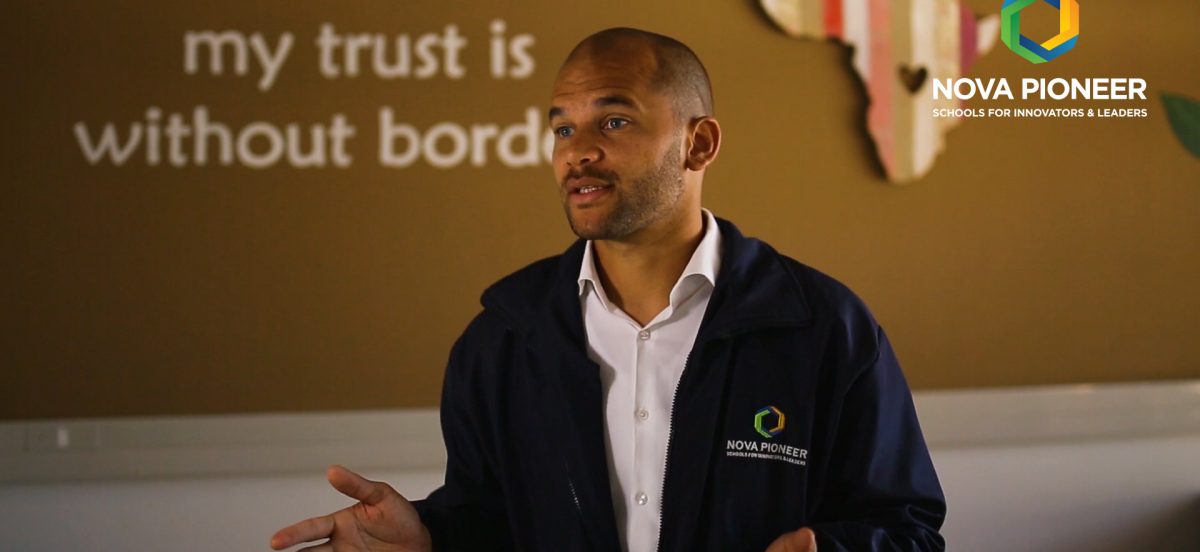Today (June 16) South Africa pauses to recognise Youth Day. Across Africa, it is the International Day of the African Child. Both of these acknowledge the initiative, sacrifice and leadership of South Africa’s youth of 1976, who rose with courage to the foremost challenge of their time in resisting apartheid; in resisting a system of education designed to subjugate them.
In commemorating the youth of 1976 today, we should also ask what the foremost challenge of today’s youth may be? What initiative, courage and leadership does it ask of them? And how do schools today need to be different to be arenas in which young Africans can develop the capacity and conviction to meet the present, and shape the future?
This can be the African Century
Our mission at Nova Pioneer is to develop generations of innovators and leaders who will shape the African Century. That mission is grounded upon the realisation that the future will be African, and on the conviction that the potential of that future lies within the boundless human potential of young Africans.
Numerically, the future will be African.
Just one decade from now, in 2030, there will be more young people entering the workforce across Africa than the rest of the world combined. By 2100, Africans will represent between 30-50% of the world’s population, compared to just 17% today. That population growth represents the foremost challenge — and opportunity — ahead for our youth and continent, and one of the top realities that will shape the world over the next 100 years.
Africa’s pace of change
In addition to those numbers, Africa’s youth face a future with the same rapid and accelerating pace of change in technology, global interaction and culture, climate, and wealth as is faced by young people the world over. Some of these will be positive (more productive technologies, better healthcare), some negative (climate change, infectious diseases), some could be both (artificial intelligence) — but all at a rate that will be both dizzying and exhilarating.
Empowering youth to meet the challenges and seize the opportunities
On the one hand, the African Century could be one of great promise: a rising of Africa’s talent, culture and prominence, contributing to a richer and more equitable world. On the other, it could betray that promise, with expanding inequality, conflict and suffering.
The key to what happens, of course, is what we do about Africa’s human capacity — and about youth development in particular. There are no shortages on this continent of opportunities to do good and do well; of problems to solve, contributions to make, innovations to create or institutions to strengthen. From the figures above, there is no shortage of innate talent to do that good work. The question is how we equip that talent to meet the challenges and seize the opportunities?
Africa’s education system can be the answer
Africa’s education mission has to be pursued on two fronts at the same time. First by providing all children with access to basic education which in turn gives access to basic opportunities. Secondly by equipping more youth with the kind of skills that they will need to shape the future.
Mission I: Provide Basic Education
We need to significantly and rapidly improve the foundational ability of all children to read, write and calculate skillfully. These are the keys to accessing basic opportunities in life and without these, a child never leaves the starting blocks. While we have made tremendous progress on getting children into primary schools across Africa, too few of our children are actually developing reasonable competence to read, write or calculate. This is an imperative and opportunity for both governments and private social innovators alike.
Mission II: Skills to Shape the Future
We also need to significantly expand access to education that equips young people with the skills, self-confidence, character, and social capital to shape the future. While the first imperative of broadening access to basic education is one shared by everyone in global education, it is on this second imperative that we at Nova Pioneer are particularly focused.
Once more, however, the question is ‘how?’
Encourage a culture of voice, enquiry and collaboration
If our schools are to be arenas of empowerment and invention — in stark contrast to their roles in Soweto of 1976 — then we need to shift our cultures and our teaching to encourage student voice and build skills of collaboration.
Firstly, that means a shift in how we learn and teach. From time spent lecturing to time spent posing and provoking questions. From teacher talk time to more student talk and think time. From respond-and-reply, to building students’ skills to form hypotheses, articulate and substantiate a view, and passionately yet collaboratively debate, dissent and deliberate on ideas.
Secondly, it means a shift in relationships. From a culture of silent obedience to a culture of respectful engagement. Silent obedience erupts in moments of resistance and recrimination — as we have seen repeatedly across our sector. Respectful engagement may unearth similar issues, but with more mutual capacity to forge solutions by which we can all live and in which we share a sense of authorship.
This requires new skills and strategies, and courage as educators and parents. Many of us adults have grown up in clearly hierarchical cultures, or with norms of quiet obedience to our elders or leaders. Indeed, respect for elders is a valued norm across much of Africa — and certainly is deeply ingrained in my own upbringing as an Igbo boy. But relationships that have shared voice and mutual respect across age and hierarchy is needed if we are to equip our children to engage the world ahead with confidence and skill.
Globally competitive standards
If our youth are to shape the African Century to be a century of flourishing, alongside their peers from around the world, then they need to achieve levels of academic growth and skill development that equips them to collaborate as peers and leaders globally.
Indeed, the single most important cultural norm a school can set is probably holding high expectations. In all sorts of contexts of resources and external culture, show me a school with strong outcomes and I’ll wager it is a school that sets high expectations and demonstrates its belief that students can meet them. By stretching to meet high expectations young people gain the single most important lesson that they can from school: that they are fundamentally capable of learning, growing and achieving.
Servant Leadership has the power to transform Africa
In recent years I have had the privilege of leading a session of our secondary schools’ leadership course. In it, we frame up two notions of what it means to be a leader: the first is a leader who expects the servitude of those that she or he leads — “the boss” we label it. The alternative is a leader who expects to serve and make better the lives of those she or he leads — “the servant leader” we label it. Africa has no shortage of formal leaders. However, our experience and examples of leadership have far too often been that of ‘the boss’, and that has betrayed so much of our possibility.
If our youth are to shape an African Century of flourishing — of greater prosperity and equity — then they will need to develop into a generation of servant leaders. Sadly, there may simply not be enough visible examples of this today to argue convincingly that it is in practice viable. We need to make examples of servant leadership more visible, and our youth will need to prove its viability with their example of their own lives. For that to happen, we have to start early to cultivate an ethic and habit of servant leadership. It will not develop on its own later. School is where we start.
Our Youth Hold the Promise and Power to Shape the African Century
As today we look back with appreciation on the youth of 1976, let us also look forward with commitment to the youth of 2021. We stand once again at a frontier with an uncertain future, reliant as we always have been on our children to shape it. They hold within them the promise and power to shape the African Century. The development of their character, capabilities and social connection — heavily through our schools — will determine what kind of century awaits.

